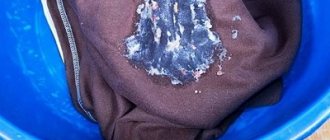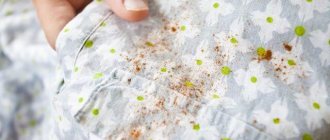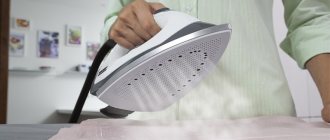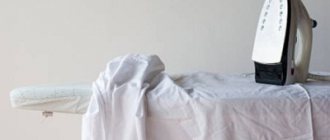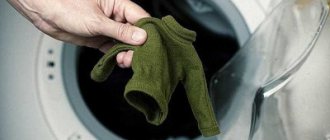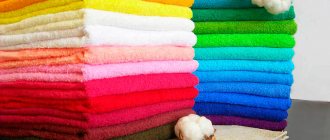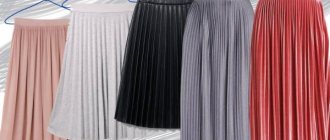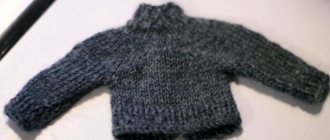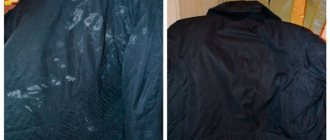Why does a damp smell appear after washing?
This often happens even to good housewives. It is not always the fault of the owner of the things. There are several main causes of unpleasant odor.
Why does a damp smell appear after washing:
- Washing wet items. Housewives often prefer to wash more than one or two items in the machine, but to collect a whole basket to spend one or two loads on the weekend. This significantly saves time and money, since approximately 40-60 liters of water are consumed per wash. That's a lot if you only wash one or two items. But it often happens, especially in the summer, that after wearing clothes remain a little damp. It absorbs sweat, which is not washed for two to three days. This is an excellent environment for the proliferation of microbes, which cause an unpleasant odor. Therefore, immediately after introducing such things into the machine, an unpleasant odor appears.
- Storing things in the drum of a washing machine. Remember that the drum is not a place to store things. Many people don’t want to shell out money to buy a special laundry basket, so they immediately place dirty clothes in the machine. Thus, a full machine is loaded, the wash is turned on, and after it you get not pleasant-smelling products at all, but stinking clothes.
Dampness
What to do if a particular item has a musty smell
In some cases, a musty smell appears not in the entire batch of laundry washed in the machine, but in a specific item. In this case, there is no need to repair the unit or thoroughly clean the elements.
In 90% of cases, an unpleasant odor appears in bathrobes and terry towels. To prevent unpleasant consequences, it is recommended to sort clothes before washing. You also need to select the appropriate temperature (indicated on the labels).
If the smell has already appeared on a specific item, you need to:
- Prepare a solution containing vinegar. You will need to take warm water (20-23 degrees) and dissolve the acid in it. For 5 liters take 3 tbsp. l. substances.
- Soak the item in the liquid for 2 hours.
- Rinse in clean water and dry thoroughly.
Read more ► How to get rid of smell in a clothes closet: effective methods of combating mustiness
Terry items must be washed using a special technology. It is important to monitor the temperature so that they do not shrink or lose the brightness of their colors.
A prerequisite is 2 rinsing cycles. In this case, you will be able to get rid of fat, fishy smell or sweat. Terry items can be washed without using rinse aids. Instead, vinegar should be added to the compartment. There is also no need to run a machine dry cycle.
If you need to remove the smell of urine, you need to first wash the items by hand or soak the laundry in water and vinegar for 2-3 hours.
A greasy stain on sportswear or a terry robe can be removed by pouring acetone over it and leaving for 90 minutes. Then you will need to wash it by hand, only after that you can load the clothes into the machine
Old dirt or stains can be removed by pouring gasoline into the area, leaving for 20 minutes, then washing by hand and rinsing.
It is important to note that gasoline may cause fabric damage or color fading.
It is necessary to know the degree of resistance of a thing to such substances so as not to spoil it. After washing, when loading into the machine, use 2 times more conditioner than usual. This will avoid the appearance of a characteristic odor.
Why do clothes stink after washing?
There are many reasons, but most often it is a careless housewife.
Why clothes stink after washing:
- Dirty washing machine. An unpleasant musty smell is associated with mold accumulation in the washing machine. Usually it accumulates both in the drum itself and on the seal. Therefore, be sure to wipe the rubber seal after each wash, removing moisture with a towel or regular napkins. Do not close the door under any circumstances; leave it ajar. This will promote drying and evaporation of moisture, preventing the growth of mold.
- Using low-quality detergents. Remember that powdered detergents are best used at high temperatures of 60 degrees. In a short washing cycle, at 40 degrees, such powders may not have time to dissolve, so solid grains settle on the hoses, seal, and inside the drum. This is an excellent breeding ground for pathogenic microorganisms that cause an unpleasant odor.
Wash
Common reasons for the formation of odor in a car
The most popular reason for the pressing problem of why clothes smell after washing is the excessive care of homeowners.
1. The units are tightly sealed. Striving for perfection in the kitchen or bathroom, the units are often tightly sealed after work. This is absolutely forbidden to do!
No matter how modern a household appliance is with many bells and whistles, it is not able to drain all the moisture completely. The remains of dirty soapy water are the most favorable environment for the proliferation of pathogenic flora.
Microorganisms and mold produce a stench that permeates the laundry. To avoid this, the washing machine door does not need to be hermetically closed, no matter how unsightly this may look from an aesthetic point of view.
Only constant access of air can ventilate the internal parts of equipment and prevent the formation of foreign microorganisms.
2. Non-standard use of detergents. In order to save money, some housewives can place products for hand washing or those not intended for machine washing at all in the drum of the machine: shampoos, shower gels.
It is also unacceptable to set quick wash cycles for active powders, which can only fully dissolve at high temperatures.
Undissolved mixtures, together with adhering dirt from the laundry, harden in lumps on the elements of the device: inside the hose, the edges of the tray, the walls of the tank.
Then these compacted masses get wet, become covered with mucus and begin to be of keen interest to the life of bacteria.
Therefore, the linen, while inside, simply absorbs this complex amber and subsequently smells very bad.
3. Exceeding the specified dosage. In an effort to wash off stubborn stains on children's clothes or work uniforms, many housewives are too lazy to pre-wash things.
Instead, they generously pour a large portion of detergents into the equipment, significantly exceeding the norm established by the instructions.
The algorithm for the formation of an unpleasant odor is the same - the inside of the equipment is covered with an explosive mixture of undissolved powder granules, dirt and water.
As a result, the natural result is that the tank stinks of mold and dampness. And after treatment, home linen smells even worse than dirty laundry.
4. Storing stale laundry in a drum. Often, owners allow themselves to use the washing machine tank as a container for dirty clothes. Why do homeowners do this?
Of course, for ergonomic reasons: in cramped bathrooms, sometimes there is simply nowhere to put a basket for dirty clothes. Any underwear - T-shirts, socks, shorts, etc. - after wearing, becomes damp from contact with the body.
Then, dumped in a heap in the car, it begins to become moist, rotting, and bacteria multiply intensively both in things and in components.
5. Incorrect installation of drainage equipment. Washed clothes smell bad, possibly due to the exhaust hose being connected incorrectly. The rubber drain hose is usually adjacent to a bend in the pipe, in which a permanent water plug forms.
Otherwise, the terrible sewer smell will penetrate into the car.
6. Neglect of preventive measures to care for equipment. The advantages of a washing machine are enormous and undeniable. Our golden assistant saves energy, precious time, and preserves the appearance of familiar things.
A smart unit does everything for us, but it does not last forever and needs to be handled with care.
It is necessary to inspect and clean equipment elements, not only when your favorite item smells bad after the current wash, but also just from time to time, about once a week.
Preventative work consists of a visual inspection, cleaning the tray, which is almost always contaminated with powder, and thoroughly cleaning the filter and drain hose.
Simple steps will not only rid your household laundry of unpleasant odors, but will also increase the service life of expensive equipment.
If for some reason it is not possible to eliminate mold odors, you can invite a professional specialist. This option will save the owner from the need for another unplanned purchase of a household appliance.
Unpleasant odor after washing: reasons
Try to dry wet items before washing if it is not possible to immediately load them into the washing machine. Otherwise, wash such items immediately and do not leave them for several days.
Unpleasant odor after washing, reasons:
- A large amount of washing powder. As in the previous version, the powder settles on the walls of the drain system and clogs the filter.
- Incorrect operation of the washing machine. It happens quite often when a technology user selects the wrong mode for a particular fabric. The temperature may be too low to wash the items, making it impossible to get rid of the unpleasant odor.
- Accelerated washing mode. This approach is only applicable if the machine is loaded with items that are not at all dirty and have only been worn once or twice. The main task of washing is to refresh the products and give them a pleasant smell. At the same time, many housewives save time and money, and put rather dirty things in a quick wash. Thus, during washing they do not have time to clean themselves, and an unpleasant odor may remain. Sometimes a short wash cycle is not enough to dissolve the detergent. Thus, the powder remains in the fabric fibers and is not washed out, causing the appearance of white spots and an unpleasant odor.
Cleaning
Why do things smell like dampness, rubber, chemicals?
There are several reasons why your washed clothes may have an unpleasant odor. They must be installed, otherwise it will not be possible to cope with the problem. Factors that contribute to the appearance of a musty odor include:
Stagnation of water in the drum or rubber cuff . To prevent this from happening, do not close the door tightly immediately after washing.- Storing dirty clothes in the washing machine . In conditions of high humidity, bacteria and mold fungi begin to actively multiply. Regular washing will not help to cope with the smell they cause.
- Improper care of the washing machine . The source of unpleasant odors can be such elements as: drain hose, detergent tray, water filter.
- Incorrect connection of the hose to the sewer pipe . In this case, the laundry will emit a characteristic sewage smell after the first wash. Another reason for this “aroma” is the rotting of the old valve, subject to many years of use.
- Failure to comply with the dosage of detergents . A large amount of powder does not have time to rinse out, covering all the elements of the washing machine with a film. This mucus becomes a reservoir for storing and multiplying bacteria.
- Long-term storage of dirty items in a laundry basket. Microbes and fungi thrive in such conditions, quickly increasing their numbers and causing a rotten smell.
- Keeping things in water for a long time . If you leave laundry soaked in a basin for 2-3 days, it will begin to rot, emitting a sour smell. Also, things can turn sour in the machine if there is a sudden power outage.
The smell of rubber can come from things after washing them in a new machine.
Therefore, all manufacturers recommend running the first cycle without laundry. A chemical smell is a consequence of using large amounts of laundry detergent or other detergents. Wearing such things is dangerous to health, especially for small children and pregnant women.
When an unpleasant trail lingers from things after each wash and comes from all the laundry, the reason is hidden in the washing machine.
If this problem occurs once, most likely it is associated with long-term storage of dirty clothes in a basket or drum.
Sometimes a person detects an unpleasant odor not immediately after processing things in the machine, but after drying . It can appear if moisture remains in the fibers of the fabric for a long time.
This happens when things are hung overlapping, at a small distance from each other, which prevents normal air circulation. Drying in a room with poor ventilation and low humidity levels makes the problem worse.
Why does it smell like sewage after washing?
In most cases, the cause of odor is installation problems.
Why does it smell like sewage after washing?
- Incorrect installation of the washing machine. Often after installation, the drain hose is immediately installed in the sewer system. However, there is no water seal; an unpleasant odor from the sewer can enter the washing machine. After washing, you will get a completely fresh aroma, but a fetid smell of drain water, sewage, and excrement.
- Untimely hanging of laundry. It is necessary to remove the laundry immediately after washing, hanging it on the balcony or outside. Remember that lack of air circulation contributes to the appearance of musty odors and mold. To cope with the problem, it is necessary to determine the cause of the unpleasant odor. Very often it occurs due to improper use of equipment. After all, during use, the washing machine needs to be cleaned from time to time. This applies to the drain hose, filter, as well as rubber seals and drum.
Clothes stink
Odor removal products
If a bad odor comes from mustiness or mold, it will be difficult to get rid of it by simply airing it out. It is necessary to eliminate the most important problem - to get rid of bacteria and their further reproduction. For this purpose additional means are used.
Vinegar
When using this product, pour a weak solution of vinegar into the compartment, not powder. To do this, start the wash as usual. In the middle of the wash, stop the machine for a break of about 20 minutes. Then continue washing the laundry and also add a vinegar solution when rinsing. Afterwards, the laundry must be well ventilated and dried. Vinegar can also remove the bad smell of laundry and clean the washing machine from mold.
Soda
Baking soda is also an excellent odor absorber. It is added to the washing machine instead of powder and an accelerated wash is started. Just like with vinegar, soak it. Clean linen is placed in a closet, which is also pre-treated with a solution of water and soda. Thus, it is possible to completely get rid of pathogenic bacteria. Baking soda is the most inexpensive, but very effective method of getting rid of odor.
Iodine
Clothes that have acquired the smell of mold take it with them to the closet shelves. To remove it not only from linen, but not to spread it to other things. You can use a bottle of iodine. It perfectly replaces flavor sachets. You just need to use it carefully. Place it in a deep bowl, using cotton wool instead of a cork, through which the substance will enter the air. Iodine vapor will kill any fungus and prevent its reappearance.
Flavors
Both artificial and natural sachets can be used as flavorings. Coffee will be a good filler; it will give the laundry a pleasant aroma. Instead of coffee, you can use regular soap. It can be used as a block or as shavings in a bag. It needs to be changed periodically. You can make fragrant sachets yourself by drying pleasantly smelling herbs (mint, lemon balm, lavender) or citrus peels.
Vodka or alcohol
Cotton underwear, such as linen or cotton, can be very well refreshed with alcohol products. You can rinse your laundry in a diluted alcohol solution. Or you can make a spray with half a glass of distilled water and half a glass of inexpensive vodka. You can also add various oils, such as lavender. The admixture with oils gives a delicious aroma and promotes good sleep when treating bed linen.
Sodium borate
A good way to get rid of damp smell is to use sodium borate. With it, the solution is diluted in a basin, clothes are soaked there and left for four hours. Next, you need to rinse and put it in the washing machine again so that not a trace of the product remains on the clothes.
Ammonia
When using ammonia, bad-smelling laundry is washed twice. Once with ammonia and then again as usual. Ammonia is a very strong agent that can kill any amber. The only drawback of ammonia is that it is necessary to carry out the entire procedure in a room with a good draft. Excess ammonia vapor can have a bad effect on the human body.
Hydrogen peroxide
To use this method, 100 milliliters of peroxide are diluted per liter of water. I soak the laundry in this solution, but not more than 10 minutes. If the fabrics are natural, it is possible to use an undiluted solution. Hydrogen peroxide perfectly fights against strong and old odors, and also gets rid of amber of organic origin (sweat, fungus, dampness).
Salt
Two to three tablespoons should be thoroughly dissolved in a liter of water. Next, soak for half an hour and rinse well, ventilate and dry. Or wet clothes are generously rubbed with salt. Leave it in this position for a while, then wash and dry again.
Clothes stink after drying, what should I do?
There are several ways to get rid of an unpleasant odor.
Clothes stink after drying, what to do:
- Try to revive the washing machine. For these purposes, you need to load a liter of vinegar and a liter of chlorine bleach into the tray, and run the wash cycle without laundry, at the highest temperature. Thus, high temperature and chemicals will help destroy mold and mildew. All pathogenic microorganisms will go away after this wash. Run the wash again, but without detergent, just with water. This will help remove any remaining chemicals without damaging things.
- Regularly after washing it is necessary to wipe the cuffs and seals with a soft cloth. Try to fight mold with copper sulfate. Prepare a strong solution, soak a cloth or napkin and thoroughly wipe all seals. Do not rush to wash off the solution yet, leave it for about 24 hours. Only after this can you remove it with water or a damp cloth. This technique perfectly gets rid of fungus and mold.
Loading
The reason for the odor of a single item of clothing
Having washed the laundry according to all the rules in a washing machine with the addition of numerous products (conditioner, stain remover), after drying it is discovered that a particular item smells bad.
Why did this happen, since other things are fragrant with a floral aroma? The reason is simple - improper drying of loose, bulky items: terry sheets, bathrobes, thick bath towels, etc.
Things of this structure need to be wrung out several times and hung only in places where fresh air circulates.
Drying in an apartment, and even more so in a bathroom, is contraindicated for terry products.
Not only will things take weeks to dry and acquire a persistent smell of dampness, but they will also be a source of harmful mold formation on tiles, floor tiles, rugs, pipes, etc.
How to remove the unpleasant smell of laundry after washing?
If pathogenic microorganisms accumulate in the detergent dispenser or drain hose, they need to be cleaned. About once a month, you need to remove the detergent tray and thoroughly clean it of scale, mold and dirt. Use an old toothbrush, as well as some strong bleach, or an alkali or acid. It happens that mold is quite difficult to remove simply with soapy water; it is necessary to use aggressive chemicals.
How to remove the unpleasant smell of laundry after washing:
- Of course, not everyone wants to dismantle the drain hose, but very often this is where the problem lies. Try to remove the second part of the drain hole and look inside the pipe using a flashlight. If there is a gray or black coating on the walls, you must discard the hose and replace it with a new one. It can be quite difficult to clean it from the corrugated surface. Somewhere in the depressions there will be mold particles that cannot be completely removed. This will encourage fungal growth and cause the problem to reoccur.
- Don't forget about the windows that are located at the bottom of the washing machine. There is a filter here that serves as a garbage collector to collect waste during the washing process. Coins, hair, wool, and debris that get into the car along with clothes usually accumulate there. Most often this happens when you carelessly examine the pockets of children's clothing. Kids love to drag home stones, branches or small toys, which often accumulate in the filter.
Towels
What should you do if your clothes stink after washing them in the machine?
Under no circumstances should you store items in the washing machine drum; purchase a special basket.
What to do if clothes stink after washing in the machine:
- If you come from the street in the summer with wet clothes, immediately put them in the drum and wash them. If this is not possible, let it dry. Only then can you throw the clothes into the basket and wait for the next wash cycle. Under no circumstances should you put a wet item in the trash, because after 2-3 days it will acquire an unpleasant odor.
- About once a month, clean the filter to remove dirt, mold and debris that has accumulated there. Be sure to leave the drum slightly open to prevent moisture from accumulating.
- Use gel detergents for washing clothes on a delicate cycle and for wool. Remember that bulk detergents on short cycles may not dissolve and accumulate on the walls of the washing machine.
- After washing, wipe the seals with a weak solution of vinegar or hydrogen peroxide.
Loading
We correct the disastrous consequences of poor-quality washing
The shortcomings of the equipment were sorted out, the rules of prevention were studied, all that remained was to resuscitate a bunch of foul-smelling clothes.
How to remove mold The fact is that the smell of mold is not so easy to wash off. This is due to persistent secretions of bacteria that literally eat into the tissue structure.
To eliminate the stench, the laundry will have to be soaked in a vinegar solution. If things are light, it would be a good idea to add a couple of spoons of soda.
Let the items sit in the container with the solution for some time, and then rinse them several times, first in warm and then in cold water.
If the restoration work still does not give the desired result, you should re-run the items in the machine, adding a flavoring agent.
How to get rid of powder smell after washing?
Try adding an extra rinse. This is usually enough to remove strong flavoring.
How to get rid of powder smell after washing:
- Always use the extra rinse option.
- Do not use additional conditioners or fragrances.
- Dose the detergent correctly and do not exceed the norm.
- Replace bulk detergent with gel or capsules.
Rinsing
A lot of useful information can be found on our website:
- How to properly wash a cotton, wool, down, padding poly, bamboo blanket in a washing machine?
- How to wash a parka at home, with fur inside, padding poly, sheepskin, down, cotton, by hand?
- How to wash nylon, children's tights so that there are no pills - by hand, in the washing machine.
- On what days of the week you can and cannot wash clothes: signs, prohibitions
- How to properly wash bed linen made of cotton, linen, satin, silk, calico, and synthetics?
Follow the washing rules, do not forget about maintenance and cleaning of the machine. Once a month, run the idle mode with citric acid.
Cleaning the washing machine
If washed clothes smell unpleasant, you need to wash the surface of all parts of the household appliance. The following methods will help:
- Be sure to wash the rubber cuff with liquid dishwashing detergent.
- It is recommended to wipe all accessible surfaces with a soda solution. The treatment will eliminate contamination and disinfect parts.
- They start the car without laundry. Set the maximum temperature, and instead of washing powder, citric acid is poured into the compartment. When the water temperature reaches its maximum, turn off the washing machine and leave it for 55 minutes. Then start the wash again. An additional rinse is required at the end.
Individual parts of equipment are also periodically cleaned:
- Clean the drain filter, which is located in the lower front part of the machine behind the panel. Open the panel, remove the filter and wash it with dishwashing detergent.
- It is recommended to clean the washing powder container every week. The compartment is removed and washed using dishwashing detergent. Then the container is rinsed and dried well.
- The rubber cuff should be cleaned using soda, vinegar or copper sulfate. The selected product is applied to the cuff and washed off after 4 hours.
- The water heating device (heating element) should also be cleaned. Getting it is problematic, so the machine is turned on at a temperature of 40 degrees, and citric acid or vinegar is added instead of powder. At the last stage, it is recommended to turn on the rinse mode.
